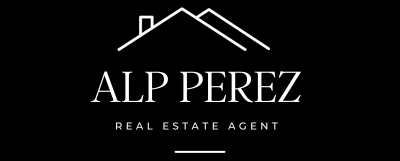
Home Buying Process Simplified: A Guide For New Home Buyers
Buying your first home can be thrilling and overwhelming. Between finding the right property, securing financing, and navigating the paperwork, the process often feels anything but simple. This guide is crafted to walk new home buyers through every essential stage of the home-buying process in North America. By the end, you’ll feel empowered with a clear understanding of what to expect, what steps to take, and how to avoid common pitfalls.
1. Assess Your Financial Readiness
Before browsing listings or booking viewings, it’s crucial to understand your financial position. Start with a detailed look at your income, savings, and debt. Your credit score plays a significant role in the mortgage rate and approval terms you’ll receive. In the U.S. and Canada, a score of 620 or higher is generally the minimum needed for conventional loans, though better scores yield better interest rates.
Budgeting Tips:
- Down Payment: Traditionally, 20% of the home’s price is ideal, but many programs allow for lower (3%–10%) down payments.
- Closing Costs: These range from 2%–5% of the purchase price and include legal fees, inspections, appraisals, and taxes.
- Emergency Fund: It’s recommended to have at least 3–6 months of living expenses saved after your purchase.
Getting pre-approved for a mortgage early will clarify your budget and signal to sellers that you’re a serious buyer.
2. Partner with the Right Professionals
Real estate transactions are complex, involving multiple stakeholders. Having the right team in place simplifies the process and protects your interests.
Key Team Members:
- Real Estate Agent: A licensed agent understands the market and negotiates on your behalf. A real estate agent will guide buyers through market analysis, neighbourhood comparisons, and offer strategies.
- Mortgage Broker or Lender: Helps secure financing and lock in favorable terms.
- Home Inspector: Evaluates the property’s condition to ensure no costly surprises.
- Real Estate Attorney (where applicable): In many states and provinces, a lawyer reviews contracts, manages the title search, and oversees closing.
Be selective. Interview professionals, ask for references, and confirm experience with first-time home buyers. The goal is to build a team that listens to your needs and communicates clearly.

3. Start House Hunting With a Purpose
Now the fun begins searching for your new home. But avoid diving in blindly. Define your “must-haves,” “nice-to-haves,” and “deal breakers” before touring homes.
Consider:
- Location: Proximity to work, schools, transit, safety, and community amenities.
- Type of Property: Detached, semi-detached, townhouse, or condo?
- Future Growth: Will this home still meet your needs in 5–10 years?
Utilize MLS websites, agent portals, and home buyer apps for tailored searches. Be realistic. No home is perfect, so stay grounded and focused on your priorities.
During showings, take notes, photos, and ask questions. Bring a checklist to evaluate structural integrity, natural light, storage, and layout flow. Don’t get distracted by decor you’re buying the bones, not the furniture.
4. Make an Offer and Negotiate
Once you’ve found “the one,” your agent will draft a formal offer based on market data and your budget. This includes price, contingencies (financing, inspection, appraisal), and your desired closing date.
Offer Strategy Tips:
- Know the Market: In a seller’s market, homes sell fast. In a buyer’s market, you have more leverage.
- Be Prepared to Negotiate: Sellers may counter your offer. Don’t take it personally — it’s part of the process.
- Include an Earnest Money Deposit: This deposit (usually 1%–3% of the price) shows your commitment and is applied toward closing.
Once accepted, the offer becomes a binding contract, pending conditions like the home inspection and financing.
5. Schedule a Home Inspection
A professional home inspection helps uncover hidden issues like faulty wiring, roofing problems, or water damage. It typically costs $300–$500 and takes 2–3 hours.
If issues are found, you can:
- Request repairs
- Negotiate a price reduction
- Walk away if the problems are severe
This is a crucial checkpoint, especially for older homes. Even new builds can have issues, so never skip the inspection.
6. Finalize Financing
With the purchase agreement in hand, your lender will finalize your mortgage. Expect to provide documents like:
- Pay stubs and tax returns
- Proof of down payment
- Bank statements
- Identification
The lender will also order an appraisal to verify the home’s value. If everything checks out, you’ll receive a “clear to close” and a final closing disclosure outlining all costs.
This is also the time to consider locking in your interest rate if you haven’t already, as rates can fluctuate even within weeks.
7. Close the Deal
Closing is the final step. It typically occurs 30–60 days after the offer is accepted. You’ll sign a mountain of paperwork — mortgage documents, legal disclosures, and title transfers.
What to Bring:
- Government-issued ID
- Certified cheque or wire transfer for your closing costs
- Proof of insurance (homeowners’ insurance is required by lenders)
Once everything is signed and money is exchanged, you receive the keys. Congratulations — you’re a homeowner!

8. Post-Purchase Tips for New Homeowners
The journey doesn’t end at closing. Consider these next steps:
- Change Locks: Always rekey or replace the locks immediately.
- Set Up Utilities: Arrange internet, gas, water, hydro, trash, and mail forwarding.
- Build an Emergency Fund for Maintenance: On average, homeowners spend 1%–3% of the home’s value annually on repairs.
- Document Ownership: Store all your paperwork, title, deed, and mortgage, in a safe place.
- Get to Know the Neighbours: Building relationships can enhance safety and a sense of community.
Buying a home for the first time can feel overwhelming, but with the right preparation, guidance, and support, it becomes a manageable and rewarding experience. By understanding each phase of the home buying journey and working with experienced professionals, you can confidently navigate the process and make informed decisions every step of the way.
Take your time, stay organized, ask questions, and remember this is not just a transaction, it’s the beginning of your new chapter.
Disclaimer: This content is provided by a guest author. We make no guarantees regarding the accuracy or reliability of the information shared.


